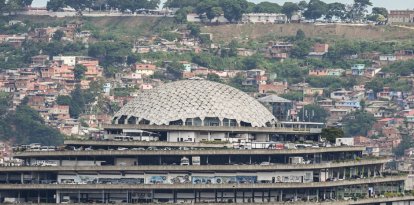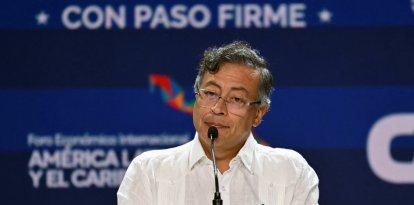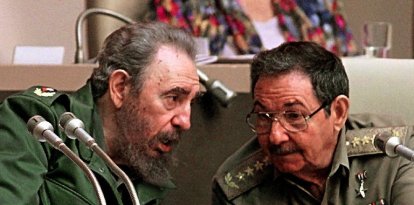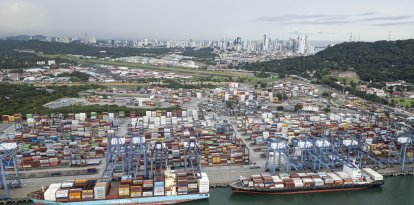Massive protests throughout Spain against the socialist government: ‘Civil resistance has begun’
Thousands of Spaniards have taken to the streets in the country's major cities. The leader of the right, Santiago Abascal, warned that they are entering a "dark period in our history."
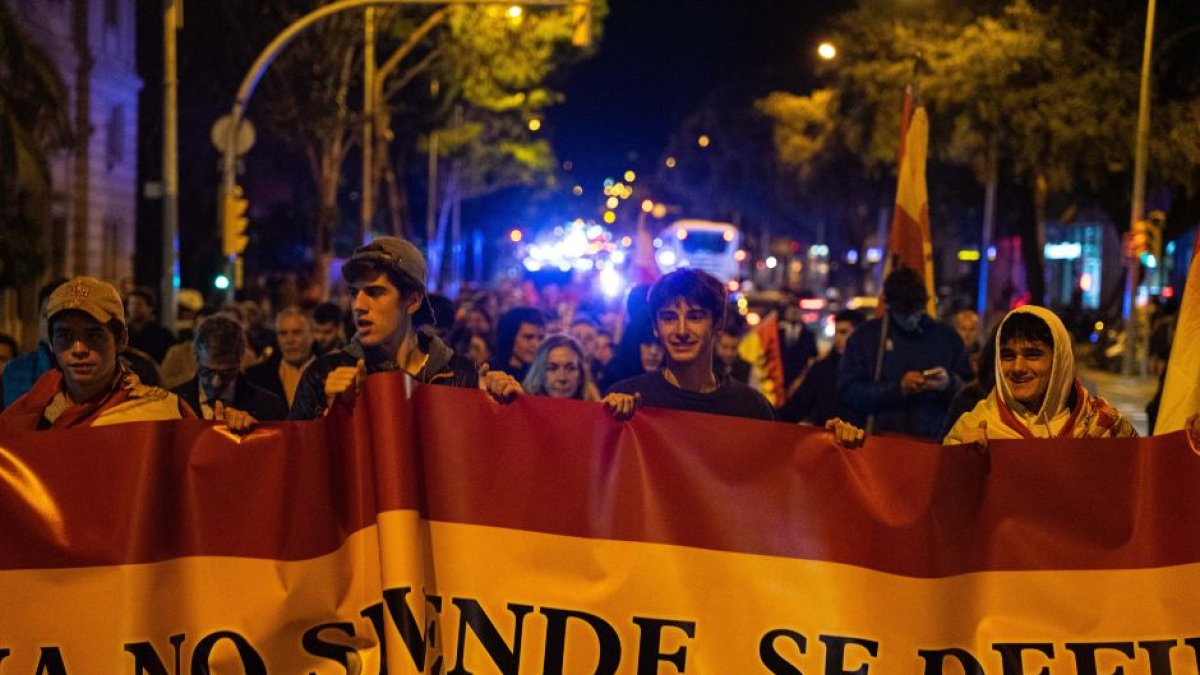
(Cordon Press)
The streets of Spain’s major cities are packed with thousands protesting against the socialist government of Pedro Sánchez. They reject the possibility of forming a new government led by Sánchez and supported by political parties that just years ago staged a separatist coup d'état.
President Sánchez, leader of the Spanish Socialist Workers Party (PSOE), called general elections for July 23 and, although his party did not win the elections, the possibility was opened for Sánchez to win and form a government.
In order to form a government, Sánchez would have to agree with one of the most controversial political groups in Spain: Catalonian independence party Together for Catalonia, whose leader, Carles Puigdemont, promoted an illegal referendum classified as a coup d'état to vote for the unilateral independence of the Community of Catalonia in October 2017.
For that coup d'état, independence leaders were prosecuted, and today they are in exile. To form a government and make Pedro Sánchez president, Junts demands a series of conditions, among which is an amnesty for all coup plotters. Sánchez agreed and, immediately, Spain rose up in protest.
The high point of the political crisis was the night of Monday, Oct. 6, when thousands of Spaniards went to the PSOE headquarters in Madrid, and the government decided to repress the peaceful protest with tear gas and rubber bullets.
This reaction was not well-received by society and, since then, every night, thousands of Spaniards have gone out, not only in Madrid but in all the main streets of the country, to protest against Pedro Sánchez and the amnesty for the coup plotters.
On Thursday, PSOE and Junts closed the agreement on the amnesty, so it is expected that Sánchez will manage to form a government in a session planned for Nov. 15 and 16.
One of the main opposition leaders, Santiago Abascal, the head of the conservative Vox party, appeared today to the press and warned about what is beginning: "A dark period in the history of Spain is beginning. A coup against the nation is underway. We begin a civil resistance that will be long and that has only one end: either the dictator in the dock or those of us who oppose this coup in jail."
Abascal asked Spaniards not to leave the streets and warned that the amnesty would have the collateral effect of putting those who opposed the 2017 coup in prison.
"Whoever releases criminals from jail to gain access to power is one step away from putting innocent people in jail to maintain that same power," Abascal said.
Another opposition leader to speak out was the Community of Madrid President Isabel Díaz-Ayuso, from the center-right Popular Party (PP). In a press conference, she said: "We expected an Amnesty Law, but this is much worse. It is not an agreement, it is a blank check. PSOE signed what they put in front of them."
Although Vox leaders have participated in the protests throughout Spain, they are not partisan. It has been the people taking to the streets to reject the socialist government, which has Spain mired in one of the worst institutional crises of its democratic era.
Assassination attempt against the founder of Vox
What has also added fuel to the people's fury was the shocking event that stopped Spain on Thursday: Hitmen on a motorcycle tried to murder Alejo Vidal-Quadras, one of the most experienced politicians in Spain, former leader of the PP in Catalonia and founder of the right-wing party Vox.
The hitmen, on a motorcycle, shot him in the face in the wealthy neighborhood of Salamanca, in Madrid, when Vidal-Quadras was leaving church. Fortunately, the bullet, which entered through his jaw, exited without fatally damaging him.
The Spanish political world was shocked by an incident that, in a country like Spain, is far from usual. Although there are no conclusions about what motivated the assassination attempt, the newspaper El Mundo reported that the authorities are investigating Iran, since Vidal-Quadras was one of those who most strongly denounced the Iranian theocracy.
Vidal-Quadras was also known for his harsh criticism of both Pedro Sánchez's government and the Junts party. In fact, in his last tweet before the assassination attempt, he wrote: "The infamous pact between Sánchez and Puigdemont that crushes the rule of law in Spain and ends the separation of powers has already been agreed upon. Our nation will no longer be like this. a liberal democracy to become a totalitarian tyranny. We Spaniards will not allow it."
"Alejo Vida-Quadras is not speaking here tonight because they shot him in the face," reads a banner in the middle of a massive protest, in front of the European Parliament headquarters, where hundreds of people shouted: "We're not all here, Alejo is missing!"
Migration crisis in Spain
The protesters are not only motivated by the amnesty for the coup plotters. Pedro Sánchez precisely lost in the July elections because his government is one of the most unpopular in the history of Spain.
One of the biggest concerns, if not the main concern of Spaniards, is the dramatic migration crisis that Spain faces, due to the massive arrival of refugees from Arab and African countries. For this reason, it is common to hear, during mass protests, chants promoting a Christian state over a Muslim one.













